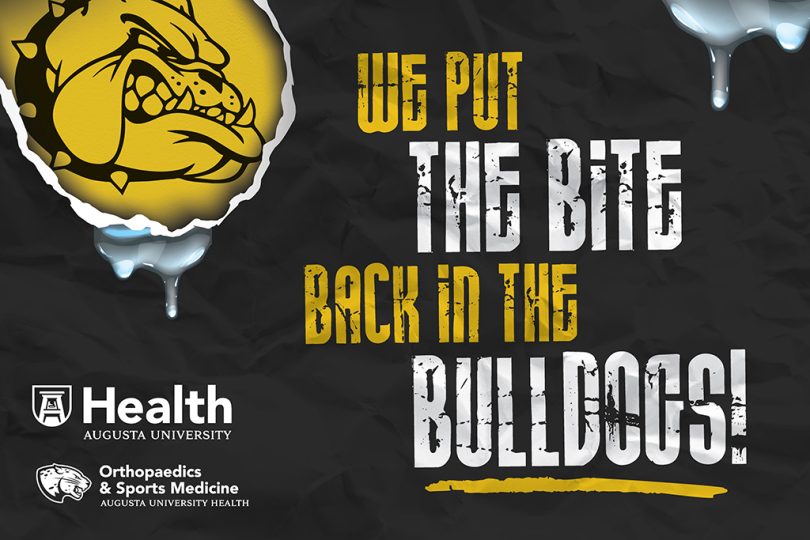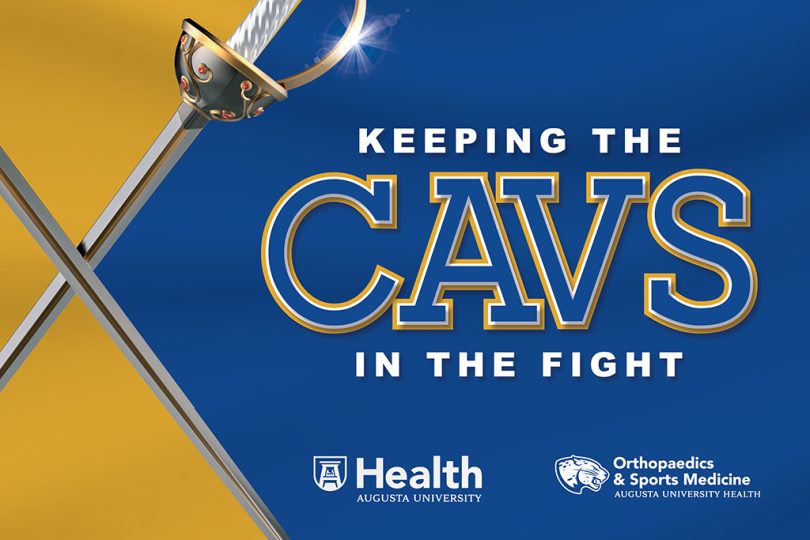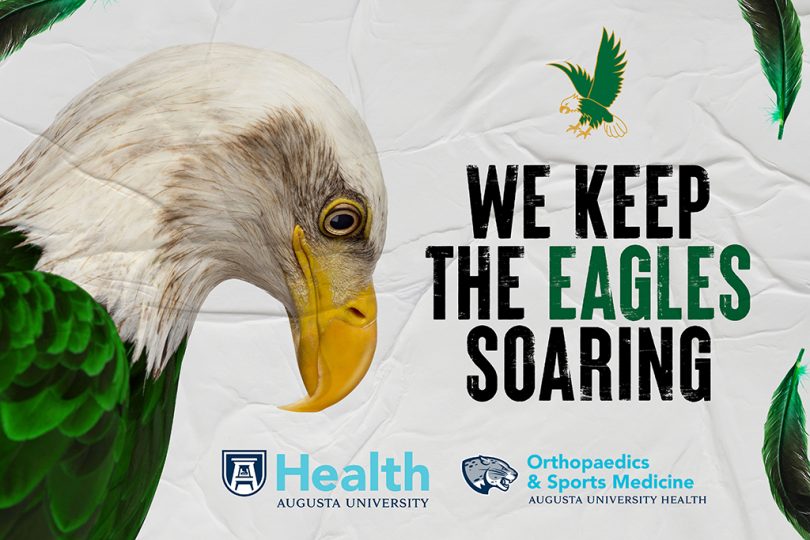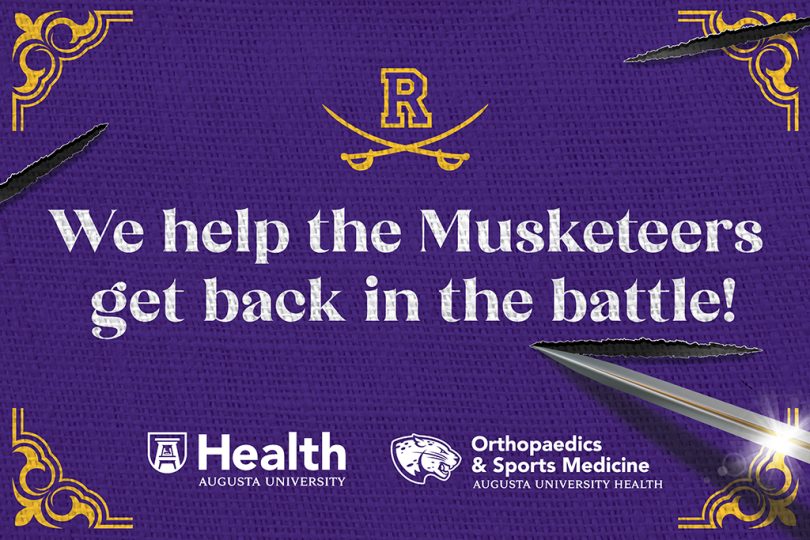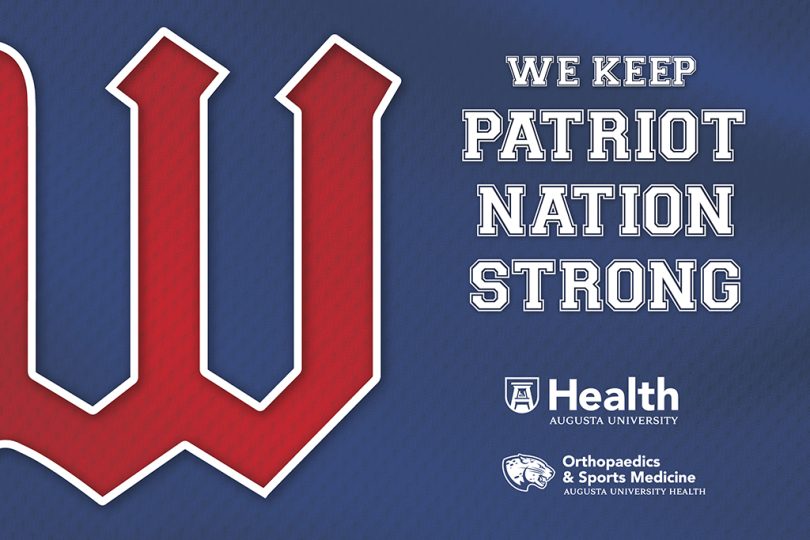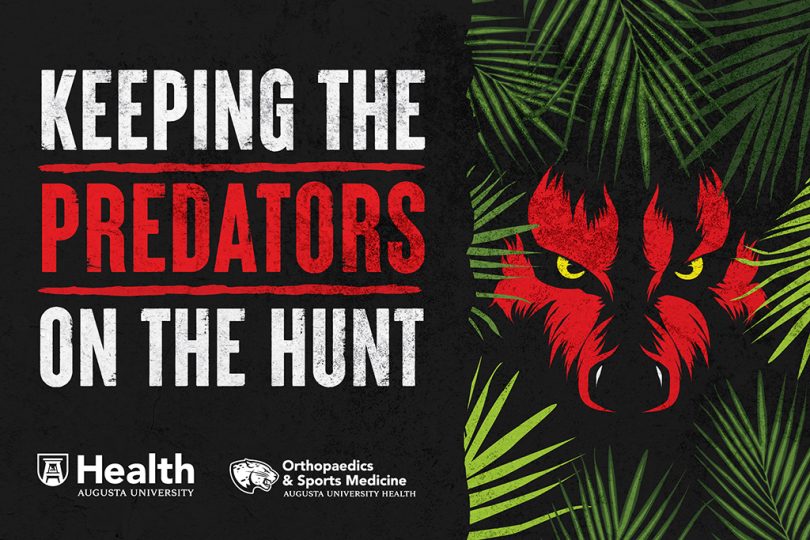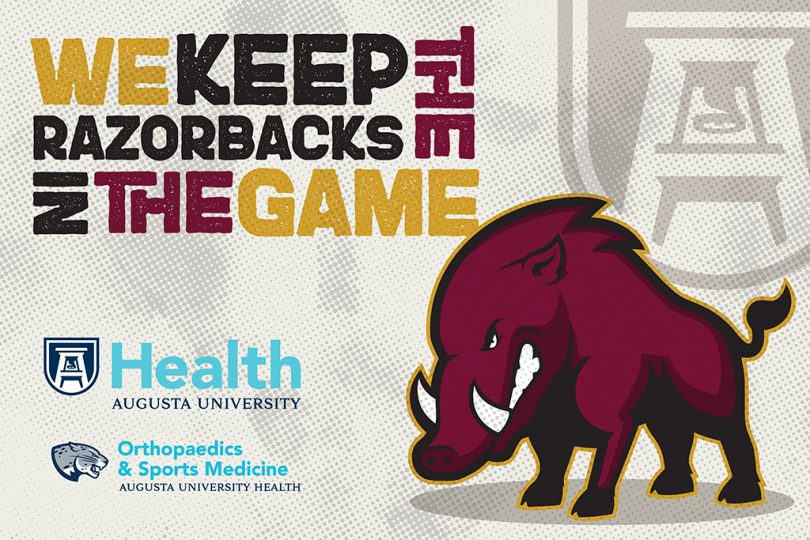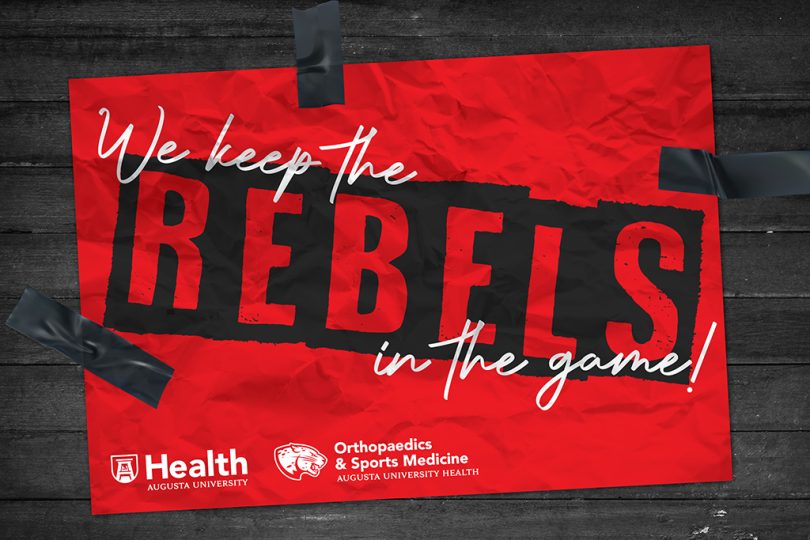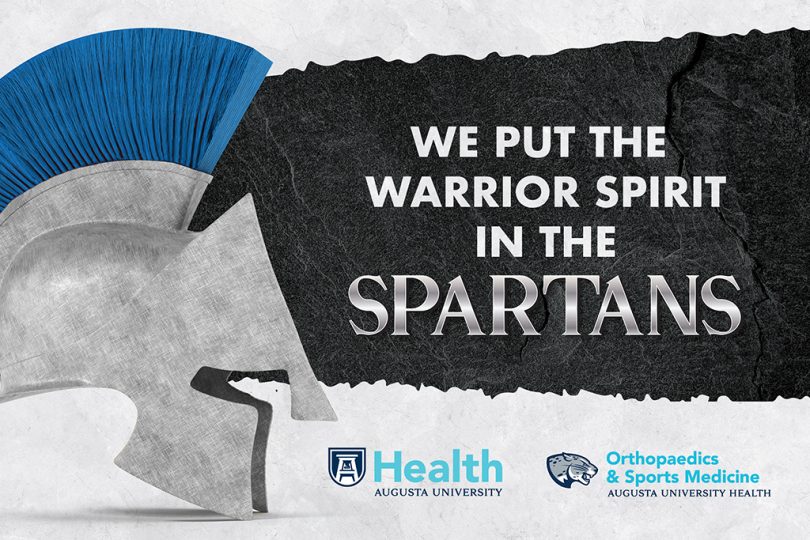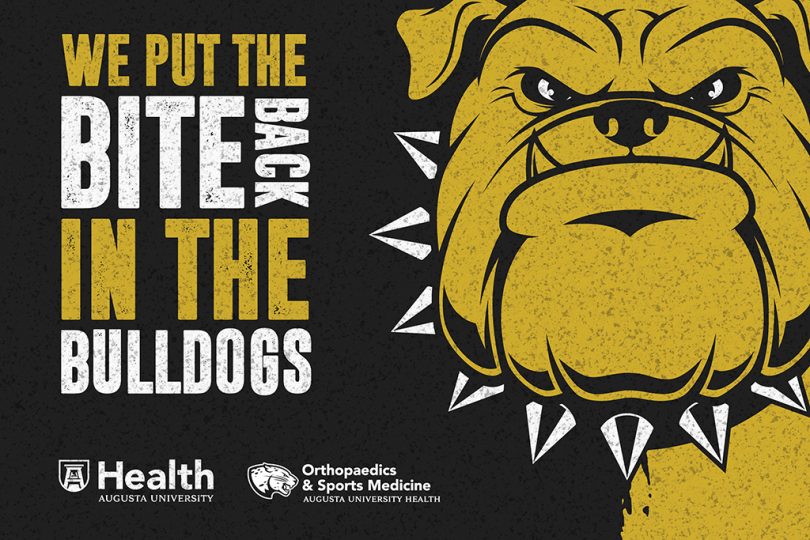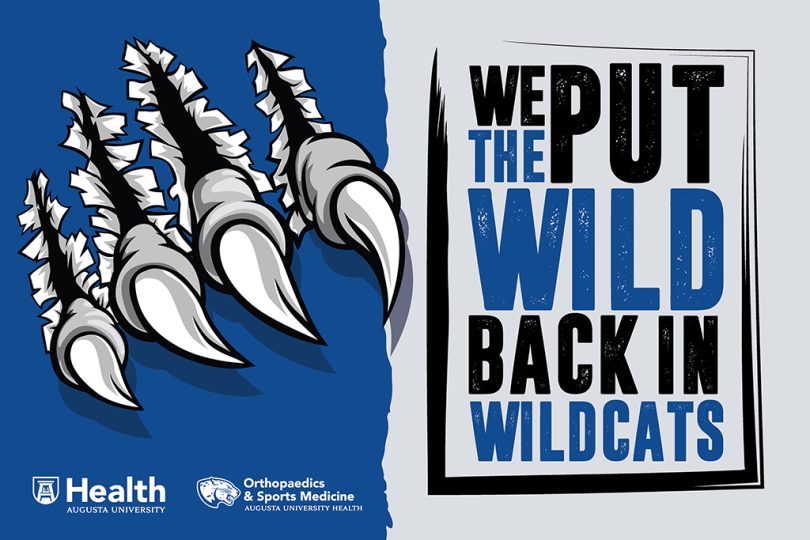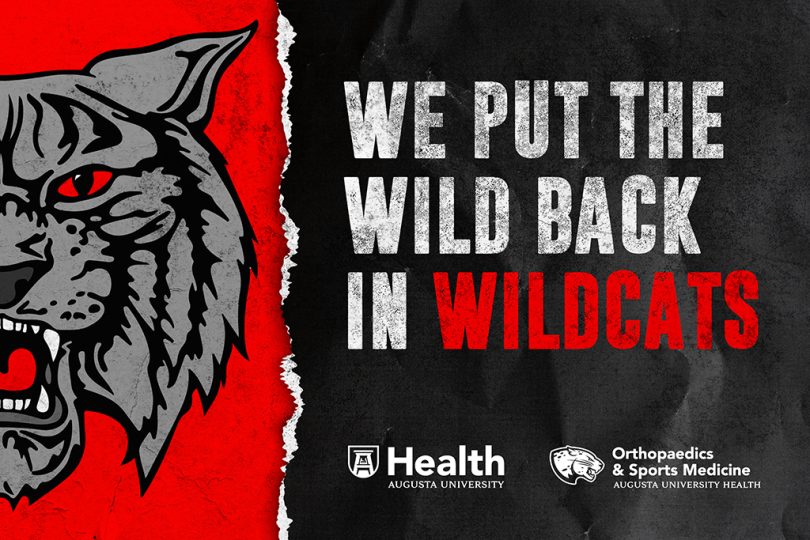Click through a slideshow of branded spirit banners placed in partner high school gyms.
They’re often not noticed until, in the middle of a Friday night football game, a player gets hurt during a play.
In that moment, athletic trainers rush to the field to tend to the player, assess the injury, and determine whether it’s safe for the player to continue, or whether they should go to a doctor for further evaluation.
These unsung heroes do so much more.
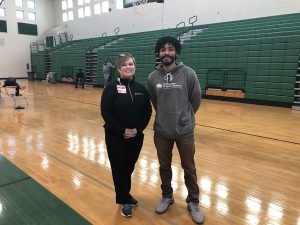
Lisa Branon, left, is the supervisor of Orthopedics Ancillary Services and Marquise Sims is the athletic trainer for T.W. Josey High School.
In Richmond County, the athletic trainers at high school sports games are AU Health employees, athletic trainers in the Orthopedics & Sports Medicine department.
“We are currently contracted to provide an athletic trainer to each of the high schools in Richmond County – minus the magnet schools,” said Lisa Branon, supervisor of Orthopedics Ancillary Services.
Additionally, AU Health provides athletic trainers at Augusta Preparatory Day School, Westminster Schools of Augusta, Thomson High School, and Fox Creek High School in Edgefield County, SC.
The athletic trainers are at every practice and every game, ensuring that the players warm up properly, helping by taping joints, assisting with stretching, and preparing their bodies to perform their best.
During the game, they’re on the sidelines ready if an injury does occur. Long after the final score, they’re still there performing post-game treatments, helping to ice players down, and assess any injuries that were not addressed during the game.
“No one ever really wants to see someone injured but that’s what we’re here for, to provide that initial care and then help them through the (recovery) process,” said Marquise Sims, the AU Health athletic trainer at T.W. Josey High School.
Sims has worked as the athletic trainer at the school for five years. He said the most important part of the job is establishing relationships with the coaches and athletes. Getting to know the athletes on a personal level helps him better assess a player’s condition if their performance is a little off. It also establishes trust between the athlete and the athletic trainer, which allows space for athletes to vent their frustrations and disappointments when needed.
“If I can make an impact as an athletic trainer just by having a few conversations with them, letting them know everything’s fine, just helping them during a situation – that’s the joy I get from my job,” Sims said.
Branon agreed that taking care of players’ mental and psychological health is also part of caring for the young athletes.
“When you have a star athlete that maybe feels pressure from the crowd, their parents, their coaches, their community, and they go down, that’s really hard on a teenager. So, the person that they spend the most time with is the athletic trainer. They’re in the training room, but it kind of becomes like a counselor’s couch,” she said. “They tend to show us a lot more emotion than maybe they show their coaches and their parents.”
AU Health really stresses having an athletic trainer on-site because injuries don’t just occur during a football game, Branon said.
She said she is thankful for the support her department receives from the schools and health systems that allow the AU Health athletic trainers to help student athletes in the community play healthily.
“The Richmond County School Board as well as the other schools have been so supportive, and we’re so grateful that AU Health has been supportive of our outreach program with the signs, the marketing and everything they’ve done to show that, we’re not just providing a service. We’re a partner with them and we want to continue to have that partnership for a very long time,” Branon said.
